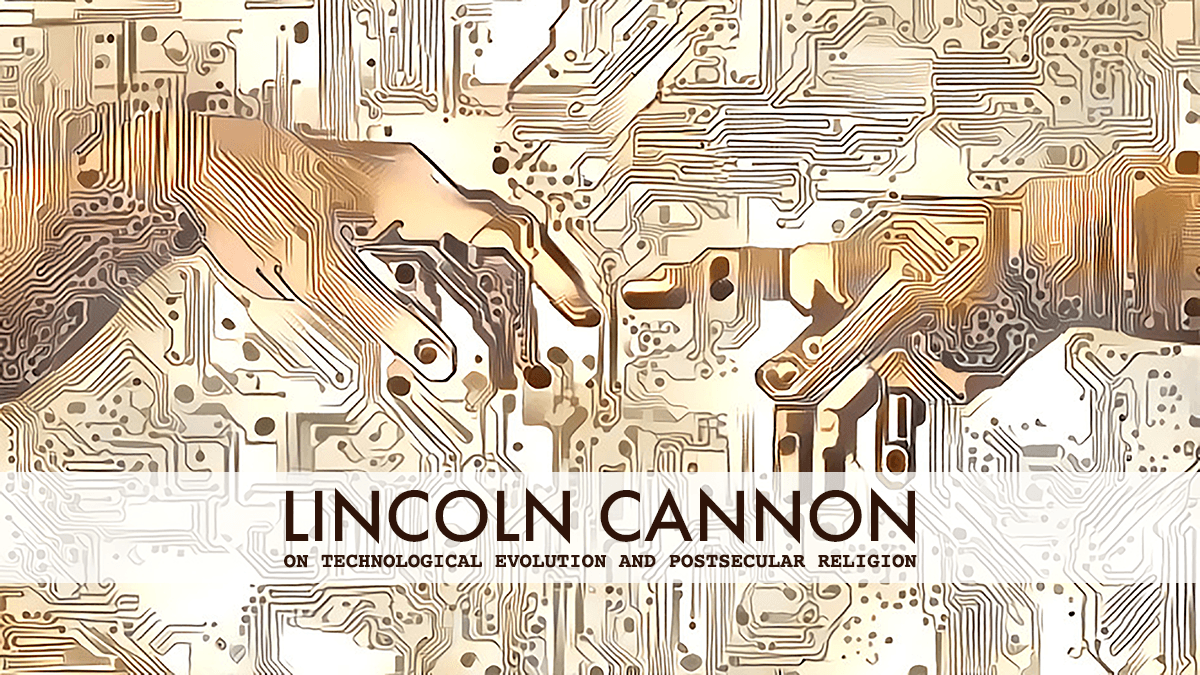Practicing Atonement
21 April 2009 (updated 11 December 2023)

This is a transcript of a talk I gave to my local Mormon congregation on the subject of the Atonement of Christ. As among Christians generally, there are many interpretations of the Atonement among Mormons. In my experience, the interpretation I share here has considerable practical power for transforming the way I think, speak, and act for the better from day to day. I welcome your feedback and questions.
In the garden of Gethsemane, Jesus began to be distressed and troubled. He said to his disciples, “My soul is overwhelmed with sorrow to the point of death. Stay here and keep watch while I pray.” Going a little farther, he fell with his face to the ground and prayed, “Father, if possible, take this cup from me. Yet not as I will, but as you will.”
Being in anguish, he was strengthened by an angel and prayed more earnestly, “Father, if it’s not possible to take away this cup unless I drink it, may your will be done.” He trembled in pain, sweating and bleeding. “Father, I would not drink this bitter cup, but as you will.” When he rose, he returned to his disciples and found them sleeping, exhausted from sorrow.
As Mormons, we recognize this as the story of the Atonement of Christ. We feel reverence when we hear it. We learn and teach that the story describes something special that Jesus did to help us return to live with our heavenly parents. But sometimes it’s hard to understand or explain how it works, and that makes it hard to use.
We can only use something as well as we understand it. For example, imagine that you see one of your friends holding a math book to the side of his head. Wondering why, you ask what he’s doing, and he tells you that he’s learning math.
Of course, you and I know that’s not going to work. Even though your friend knows the book can help him learn math, he doesn’t know how it works, so he’s using it wrong. The same is true of the Atonement. We can know how the Atonement is supposed to help us without knowing how it works or how to use it.
To illustrate, I’ll tell you a little about me. My parents worked hard to teach me about God, Christ, and the other parts of our religion. We read our scriptures regularly, talked about what we read, and attended church together each week. Many of the ideas I learned made sense to me.
Happiness really is the reason for life. Without love, we really are nothing. We really should become like God. I felt these ideas as deeply as I believed them.
But not all of the ideas I learned as a child made sense to me. In particular, I couldn’t make sense of the Atonement.
Sure. I could repeat the story from memory or find it in the scriptures. I knew how the Atonement was supposed to fit in to the big picture.
But it just didn’t click. Why couldn’t we be happy, love each other, and work to become like God without the Atonement? It truly was a mystery, both for my mind and for my heart.
Eventually, that changed. Today, I can tell you how I understand and use the Atonement. I can tell you how it affects my thoughts, and how these thoughts sometimes change my words and actions for the better.
I know many of you can do the same, and that even if our understandings are different, the difference is an opportunity for us to improve. I also know that some of you don’t understand the Atonement. Maybe, like it was for me, it just doesn’t make sense to you. Or maybe you haven’t felt a need for it.
Whether we understand the Atonement or not, I hope, today, to say something useful for each of us.
Meaning of Atonement
Generally, we use the word “atonement” to describe what Jesus did in Gethsemane. Of course, that’s an appropriate use of the word. But it also has a broader meaning.
The English word “atonement” was invented five hundred years ago by William Tyndale. He combined the words “at” and “one” into “at-one-ment.” And he used the new word to describe works that bring persons together as one, like making friends. In particular, he used “atonement” to describe works intended to improve the relationship between God and humanity.
In this broader sense, Gethsemane was not the beginning of atonement. God and humanity were working to improve their relationship long before.
For example, the ancient Jews recognized that they didn’t always act the way they should. And they worried that God would be unhappy with them. So when they decided to change and do better, they atoned.
Generally, their atonement took the form of ritual sacrifices. The word “atonement” appears in 33 chapters of the Bible. All but one of those chapters use “atonement” to describe ritual sacrifices performed by Jews to show that they wanted a better relationship with God.
Gethsemane also was not the end of atonement. The relationship between God and humanity still needed to improve. And we still needed to do part of the work.
Jesus told his disciples that they would do the same works he did, and that he would help them do even greater works. The apostle Paul told the Colossians that his suffering for them was a continuation of Christ’s suffering. He also explained to the Romans that they would not be glorified with Christ unless they suffered with him.
The Book of Mormon teaches that there should be a great and last sacrifice that would put an end to blood sacrifices. But this sacrifice would be infinite and eternal. And we should each participate by offering a broken heart and a contrite spirit.
Meaning of Christ
Let’s also look at the word “christ.” This English word comes from the Greek word, “kristos,” which has the same meaning as the Hebrew word, “messiah.” A christ or messiah is an anointed person, or someone set apart with a special purpose. And that special purpose is generally atonement.
In other words, a christ is a person that helps bring us together as one, like someone that helps us make friends. In particular, a christ is someone that helps improve the relationship between God and humanity. We use “christ” to describe Jesus, not because his last name was “christ,” but because we recognize Jesus as someone set apart with the special purpose of atonement.
In this broader sense, Jesus was not the first christ. Like Jesus, other special persons were helping to improve our relationship with God.
The ancient Jews regularly used the word “messiah” (translated into English as “anointed”) as a title for their prophets, priests, and kings. They also sometimes used the title for others that helped them. For example, the prophet Isaiah called Cyrus, Emperor of Persia, a messiah because he freed the Jews from captivity in Babylon.
Jesus also was not the last christ. Special persons still needed to help improve our relationship with God.
Jesus told his disciples that they should be one with him. The apostle Paul told the Galatians that they were clothed in christ, and explained to the Colossians that christ was in them.
The Book of Mormon teaches that each of us should take the name of christ, and that God will call us to salvation by that name. Echoing earlier prophets, President Thomas S Monson recently said, “… we literally become saviors on Mount Zion. As our Savior gave His life as a vicarious sacrifice for us, so we, in some small measure, do the same when we perform proxy work …”
Although Jesus was not the first or the last christ, he is the head of the Christ. And although Gethsemane was not the beginning or the end of atonement, it is the heart of the Atonement. We look to Jesus Christ and the Atonement in Gethsemane as the principal example of the kind of person we should be, the kind of work we should do, and the standard by which we measure all other persons and their works.
The many other examples of christs and atonements, before and after Jesus and Gethsemane, don’t detract from the importance of Jesus or Gethsemane. Rather, the examples underscore the importance of Jesus and Gethsemane. They show that our desire to improve our relationship with God is ancient and enduring. And they show that we can each do something to help fulfill that desire.
That’s the reason we’ve repeated the story of the Atonement of Christ for centuries. Each time, we hear the echo of Jesus’ words, “… for the works which ye have seen me do that shall ye also do …”
Atone in Love
Like many others before us, you and I have been called to take the name of Christ and participate in the Atonement, following the example of Jesus in Gethsemane. He prayed that we would be made perfect in one with him and God. And he charged us, saying, “… be one; and if ye are not one ye are not mine.”
We become one through love, which is the only way to participate in the Atonement. As Jesus taught, we should love God with our whole heart and mind. And we should love others as we love ourselves.
Any work that improves our relationship with God and others is motivated by love, definitionally. The apostle Paul called this “charity,” and described it as kindness, humility, respect, generosity, patience, honesty, trust, hope, endurance, and even suffering, as illustrated by Jesus in Gethsemane.
Without this love, we cannot follow Jesus’ example. And we cannot become one. The Book of Mormon encourages us, “pray unto the Father with all the energy of heart, that ye may be filled with this love, which he hath bestowed upon all who are true followers of his Son, Jesus Christ; that ye may become the sons of God; that when he shall appear we shall be like him.”
Trusting in Jesus’ example, our faith leads us to pray for love and seek to be filled with it. That’s the first thing we can do to participate in the Atonement.
Atone in Repentance
The second thing we can do to participate in the Atonement is to repent and forgive ourselves. We’ve all made mistakes. Maybe we hurt or offended someone. Maybe we didn’t do something we should have done.
As a consequence, we’ve all felt sorry or alone. These feelings should lead to positive change, as we seek to apologize and fix our mistakes. However, sometimes these feelings lead to shame or hopelessness.
Speaking to each of us, Jesus said, “Come unto me, all ye that labour and are heavy laden, and I will give you rest. Take my yoke upon you, and learn of me; for I am meek and lowly in heart: and ye shall find rest unto your souls. For my yoke is easy, and my burden is light.” When we’ve tried to apologize and fix our mistakes, it’s up to us to accept Jesus’ invitation to take on the yoke of Christ and join him in the Atonement by forgiving ourselves.
This will require a sacrifice. It can be hard to let go of shame and hopelessness.
Atone in Forgiveness
We can also participate in the Atonement by forgiving others. We’ve all suffered from others’ mistakes. As a consequence, we’ve all felt angry or afraid.
These feelings should lead to positive change, as we seek to protect ourselves and help others understand how they’ve hurt us. However, sometimes these feelings lead to hatred or revenge, and even more suffering.
We read in the Bible that Jesus asked, before healing a paralyzed person, “Whether is easier, to say, Thy sins be forgiven thee; or to say, Rise up and walk?” Answering his own question, he continued, “… that ye may know that the Son of man hath power on earth to forgive sins … Arise, take up thy bed …”
Although none of us can fix all the consequences of our mistakes, we do have power to forgive. When we’ve tried to protect ourselves and help others understand how they’ve hurt us, we can emulate Jesus and participate in the Atonement by forgiving others. To do this, we have to sacrifice our hatred and revenge, no matter how badly we want them, even when others don’t repent or forgive us.
Atone in Service
Another way to participate in the Atonement is to serve others. In the Book of Mormon, King Benjamin teaches that we serve God by serving others. Jesus taught that if we love him then we will keep his commandments and that, because he loves us, he will do whatsoever we ask in his name.
We serve others when we seek to know and fulfill their desires. Jesus shows an example when he repeatedly urges his disciples to share their desires so that he can serve them, saying, “… ask, and ye shall receive, that your joy may be full.” In the Book of Mormon, we read that God “… granteth unto men according to their desire, whether it be unto death or unto life … he allotteth unto men, yea, decreeth unto them decrees which are unalterable, according to their wills, whether they be unto salvation or unto destruction.”
Serving others according to their desires requires us to sacrifice our desires. This can be difficult to do. But it naturally improves our relationships, brings us together, and makes us one.
Building from the foundation of love, repentance, forgiveness, and service, there are many other ways that we can and do fulfill our calling, as disciples of Christ, to become one. Artists work to unite our hearts through beauty. Politicians work to unite us in justice and peace. Scientists work to unite our minds in shared knowledge.
Each of us contribute, according to our abilities. Each of us make sacrifices in the process. In all of this, we can see the Atonement of Christ at work.
My Atonement
Brothers and sisters, I’m with you in this meeting today because of the Atonement of Christ. For me, as for many of you, it gives meaning to everything we do here.
To be honest, there have been days when I haven’t wanted to be here. Maybe for you it was the Super Bowl. Sometimes we get bored. Sometimes we hurt each other’s feelings.
For me, like for some of you, it’s that I don’t always feel like I fit in, as I listen to our various perspectives. That might surprise some of you. But I hope it also comforts some of you to know that there’s someone else in the room like you.
Like you, I keep coming back because I believe it’s the right thing to do. It’s better for me to keep working to understand and to be understood than to give up. That’s something I learned, above all, from reading and thinking about Jesus Christ.
Even outside religious settings, the Atonement of Christ gives meaning to my life. In Jesus’ journey from the garden of Gethsemane to the garden tomb, he suffered. But he also rose again. In that, I find enduring hope that pain and misery can be replaced with pleasure and happiness, any number of times, as we look forward and work toward a better world.
This hope became particularly important to me a decade ago when my father died at a young age from cancer. At first, it was difficult for me to find much meaning in his death. How could there be meaning in so much suffering for so many years, in his body and in the minds of those that loved him?
Of course, the question itself eventually led to its answer. I learned that I had the power to make my father’s death meaningful through my choices and actions. And that taught me something about the Atonement of Christ, in its broadest sense.
Atonement Risk
Telling you these things, I recognize there’s a risk. There’s always risk when we share personal things about ourselves. Intimacy, like all acts of atonement, is risky.
We sacrifice some security, which often results in suffering. We do it, though, because we’re confident that the risk is worth the reward. We look forward to the happiness that comes from making new friends, knowing old friends better, and building relationships strong enough to endure even death and hell, with help from God.
In other words, I share myself with you, as you do with me when you stand at this pulpit, as an act of atonement – one more small part of the infinite and eternal Atonement of Christ, following the example of Jesus in Gethsemane.
Brothers and sisters, I’ve experienced the comfort and clarity of the Holy Spirit as I’ve learned about the Atonement. Each time, the experience reinforces my trust in the value of these principles. I testify of this in the name of Christ. Amen.

